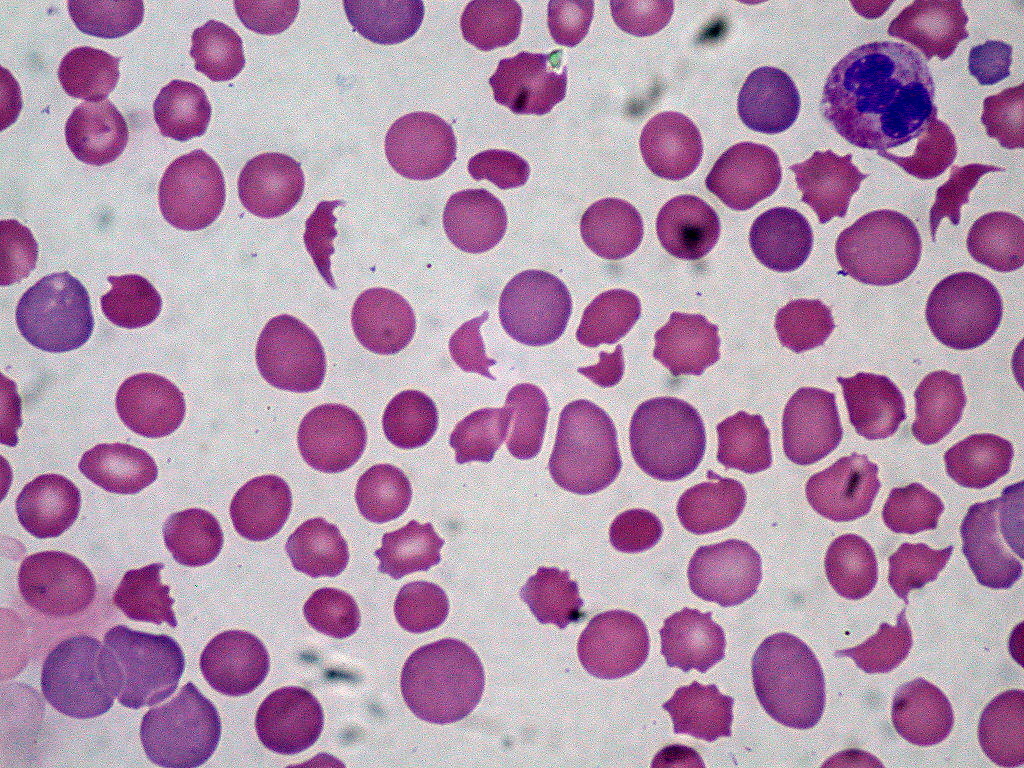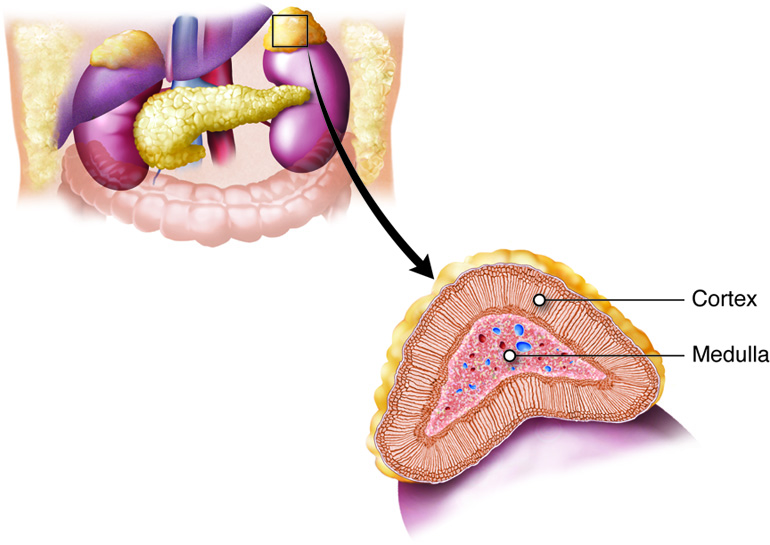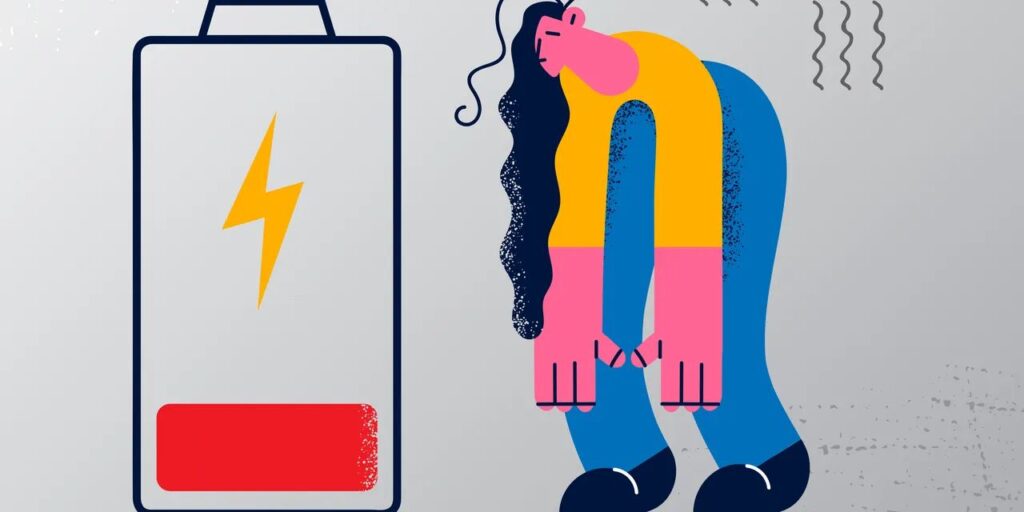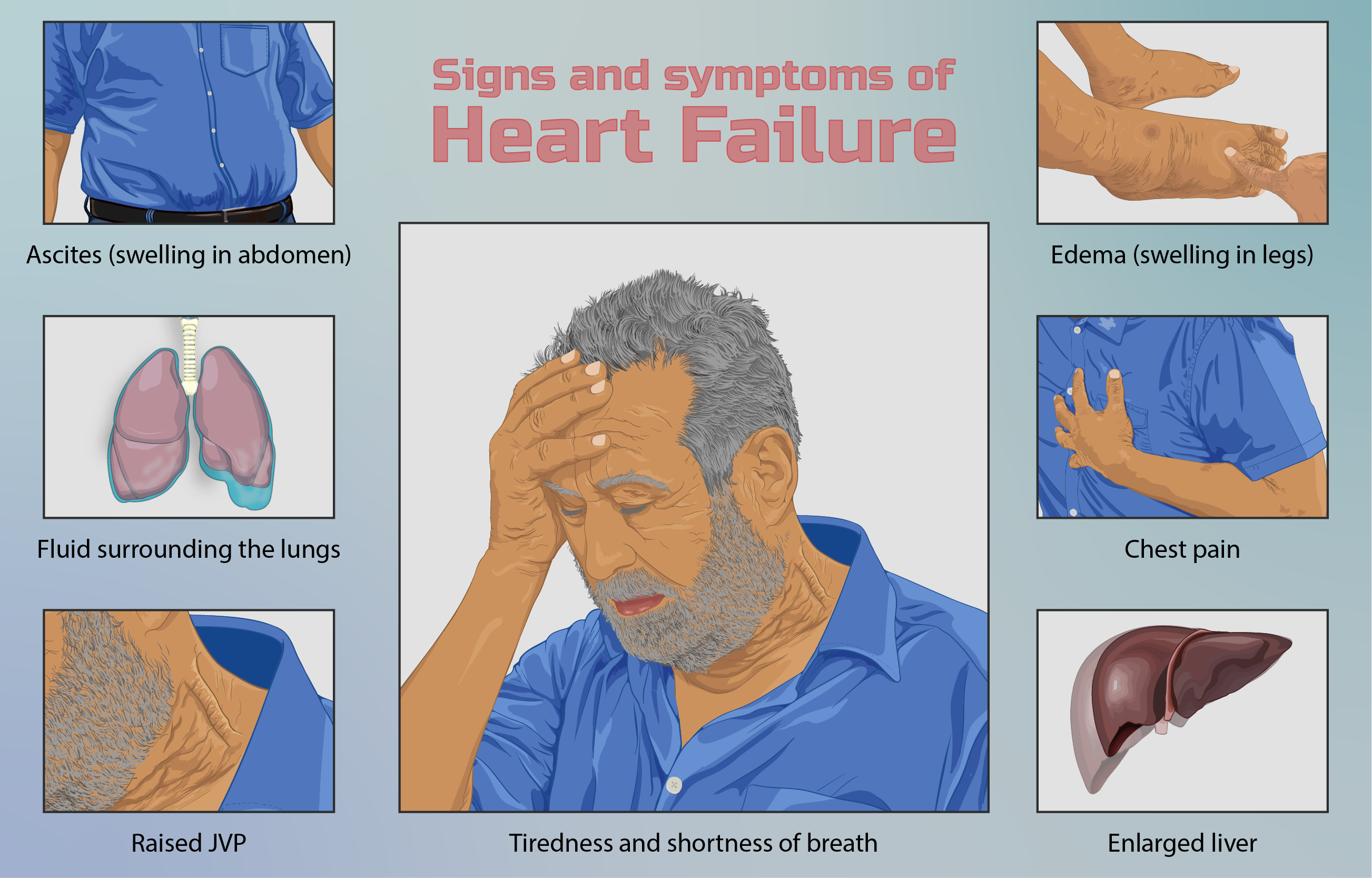
Chronic fatigue represents more than just the occasional tiredness many of us experience; it’s a persistent state of exhaustion that fails to improve with rest and profoundly impacts daily functioning, work performance, and overall quality of life. Unlike temporary fatigue stemming from poor sleep or an increase in activity, chronic fatigue often signals underlying medical conditions that demand professional evaluation and targeted treatment. It’s a debilitating and disruptive symptom that can be linked to autoimmune diseases, sleep disorders, metabolic imbalances, poor dietary habits, or chronic stress.
For those grappling with persistent and unexplained tiredness, the journey to a diagnosis can be challenging. Fatigue is a common symptom linked to various medical conditions, such as anemia, chronic fatigue syndrome, heart disease, depression, and sleep apnea. It can also be triggered by lifestyle factors such as poor diet, lack of physical activity, insufficient sleep, and persistent stress. Understanding the most common medical causes of chronic fatigue empowers individuals to seek appropriate testing, receive timely diagnoses, and pursue effective treatment strategies that can ultimately restore their energy and vitality.
In this in-depth look, we will explore some of the most prevalent medical conditions that doctors commonly identify as culprits behind chronic fatigue. By shedding light on these often-complex issues, we aim to provide clarity and guidance for anyone experiencing persistent exhaustion, helping them take the crucial first steps toward reclaiming their health and well-being.

1. **Thyroid Disorders**Thyroid dysfunction stands among the most prevalent treatable causes of chronic fatigue, affecting millions of people who may remain undiagnosed for months or even years. The thyroid gland plays a key role as a metabolic regulator throughout the body, making thyroid imbalances particularly disruptive to energy production and overall vitality. When thyroid function is disrupted, it can slow down all aspects of energy production.
Hypothyroidism, or an underactive thyroid, slows metabolism throughout the body, causing persistent fatigue, weight gain, and cold intolerance. This condition reduces the production of thyroid hormones T3 and T4, which are essential for cellular energy production and metabolic function. Individuals with hypothyroidism often describe their fatigue as feeling like they’re moving through thick fog, where even simple tasks require excessive effort.
The condition commonly develops gradually, making it difficult to recognize that declining energy levels aren’t simply due to aging or lifestyle factors. Additional symptoms accompanying hypothyroid fatigue include muscle weakness, joint stiffness, depression, and difficulty concentrating. These symptoms often compound the exhaustion, creating a cycle where reduced activity leads to further deconditioning and increased fatigue.
Conversely, hyperthyroidism, or an overactive thyroid, increases the metabolic rate beyond normal levels, leading to nervousness, sleep disruption, and a paradoxical form of fatigue. While an overactive thyroid might initially create feelings of increased energy and alertness, this hypermetabolic state eventually depletes the body’s resources and severely disrupts normal sleep patterns. Hyperthyroid individuals often feel simultaneously wired and tired, experiencing racing thoughts and physical restlessness alongside profound exhaustion.
Night sweats, a rapid heartbeat, and anxiety frequently interfere with restorative sleep, perpetuating the cycle of fatigue that can become truly debilitating. Thyroid function assessment through TSH, free T3, and free T4 testing provides essential information for diagnosing thyroid-related fatigue. Early detection allows for prompt treatment with thyroid hormone replacement or anti-thyroid medications, often leading to significant improvement in energy levels within weeks to months of starting appropriate therapy.
Read more about: Beyond Fatigue: Crucial Thyroid Disorder Symptoms You Should Never Overlook, Including Early Signs That Begin in Your Hair and Skin

2. **Anemia and Low Iron Levels**Anemia represents another leading cause of chronic fatigue, affecting the blood’s ability to transport oxygen efficiently throughout the body. This condition can develop gradually, making its symptoms easy to dismiss as normal tiredness until they become severe enough to significantly impact daily activities. It’s a common symptom linked to various medical conditions, and when your cells are not well-oxygenated, they cannot produce energy efficiently.
Iron deficiency anemia, the most common type, reduces oxygen delivery to tissues throughout the body, causing persistent weakness and overwhelming tiredness. Iron plays a crucial role in hemoglobin production, which is the protein that carries oxygen from the lungs to tissues and organs. When iron levels become insufficient, the body cannot produce adequate healthy red blood cells, resulting in decreased oxygen-carrying capacity.
This oxygen deficit forces the heart to work harder to meet the body’s needs, contributing to feelings of exhaustion even during minimal exertion. Women of reproductive age face an increased risk due to menstrual blood loss, while vegetarians and vegans may develop iron deficiency if their diets don’t include adequate iron-rich foods or absorption enhancers like vitamin C.
Other forms of anemia, such as vitamin B12 and folate deficiency anemia, can also cause significant fatigue by impairing red blood cell production and function. These vitamin deficiencies often develop gradually and may be accompanied by neurological symptoms such as numbness, tingling, and cognitive difficulties. Chronic diseases like kidney disease, cancer, or inflammatory conditions can lead to anemia through various mechanisms, including reduced red blood cell production or increased destruction.
This type of anemia often requires treatment of the underlying condition alongside direct anemia management. Diagnostic testing for anemia involves a complete blood count (CBC) to reveal red blood cell levels, hemoglobin concentration, and other indicators. Iron studies provide detailed information about iron stores, while vitamin B12 and folate levels can identify nutritional deficiencies. Early detection enables prompt treatment and helps prevent progression to more severe anemia.
Read more about: Beyond Fatigue: Crucial Thyroid Disorder Symptoms You Should Never Overlook, Including Early Signs That Begin in Your Hair and Skin

3. **Sleep Apnea**Sleep disorders create a complex relationship with chronic fatigue, both causing exhaustion directly through poor sleep quality and exacerbating other medical conditions that contribute to tiredness. Among these, sleep apnea is a condition in which breathing stops and starts many times during sleep, preventing restorative rest by causing repeated breathing interruptions throughout the night. This leads to fragmented sleep and decreased oxygen levels.
These disruptions prevent the deep sleep phases necessary for physical and mental recovery, resulting in persistent daytime fatigue despite spending what seems like adequate time in bed. Individuals with sleep apnea often report feeling tired immediately upon waking, experiencing morning headaches, and struggling with concentration and memory throughout the day. It’s a common symptom associated with fatigue that significantly impacts quality of life.
The condition is frequently underdiagnosed, particularly in women and individuals who don’t fit the typical profile of overweight middle-aged men. Sleep apnea testing can be performed through overnight sleep studies or home sleep tests, providing a definitive diagnosis that enables appropriate treatment with continuous positive airway pressure (CPAP) therapy or other interventions. Addressing sleep apnea can dramatically improve energy levels and cognitive function.
Read more about: Critical Depression Symptoms You Should Never Ignore: A Deep Dive into the Sleep-Depression Connection for Your Well-being

4. **Insomnia**Prolonged poor sleep from insomnia leads to chronic exhaustion that compounds over time, creating significant impairment in cognitive function and physical performance. Insomnia is a pervasive issue, often stemming from stress, underlying medical conditions, certain medications, or various lifestyle factors that disrupt normal sleep patterns. It is characterized by difficulty falling asleep, staying asleep, or getting restful sleep.
This lack of restorative rest directly impacts the body’s ability to regulate energy, leading to hormonal imbalances that increase feelings of tiredness and exhaustion. Insomnia can also exacerbate other factors associated with fatigue, such as weakened immune function, weight gain, and mood disturbances like depression, which can further reduce overall well-being. Evidence published in Sleep Science highlights the direct link between lack of sleep and fatigue.
The authors conclude, “Ultimately, these findings suggest that sleep quality must be considered when trying to understand ways to improve the long-standing predisposition to energy and fatigue.” The relationship between insomnia and other medical conditions creates additional complexity, as thyroid disorders, autoimmune diseases, and chronic pain conditions frequently disrupt sleep quality. Addressing insomnia often requires treating underlying conditions while implementing robust sleep hygiene strategies.
Sleep studies can identify specific sleep disorders contributing to fatigue, while sleep quality assessments help determine whether poor sleep is a primary cause or secondary consequence of other medical conditions. Understanding sleep patterns provides valuable information for developing comprehensive treatment approaches tailored to individual needs.
Read more about: Beyond the Stiffness: Serious Autoimmune Signals Including Those That Start in Your Skin You Should Never Ignore

5. **Autoimmune Diseases**Autoimmune conditions are responsible for some of the most challenging forms of chronic fatigue, involving complex interactions between immune dysfunction, chronic inflammation, and neurological effects. These diseases often produce profound exhaustion that can be even more debilitating than other disease symptoms, making daily life incredibly difficult for those affected. Fatigue is a debilitating and disruptive symptom that can be linked to autoimmune diseases.
Conditions like Lupus, rheumatoid arthritis, multiple sclerosis, and Hashimoto’s thyroiditis cause fatigue through inflammation, immune dysfunction, and sleep disturbance. The chronic inflammatory processes characteristic of autoimmune diseases directly affect energy production at the cellular level while triggering systemic responses that promote fatigue. Cytokines and other inflammatory mediators released during autoimmune activity can cross the blood-brain barrier, affecting brain regions responsible for energy regulation and mood.
This neuroinflammation contributes to the cognitive symptoms often accompanying autoimmune fatigue, including difficulty concentrating and mental fog. Each autoimmune condition presents unique challenges for fatigue management; for instance, multiple sclerosis may cause fatigue through demyelination of nerve fibers, while rheumatoid arthritis creates exhaustion through joint inflammation and pain that disrupts sleep and limits activity. Lupus can affect multiple organ systems simultaneously, producing fatigue through diverse mechanisms including kidney involvement, joint inflammation, and neurological effects.
Hashimoto’s thyroiditis combines autoimmune inflammation with thyroid hormone dysfunction, creating particularly complex fatigue patterns that may fluctuate with disease activity and hormone levels. Autoimmune disease management typically involves medications to control immune activity and inflammation, along with lifestyle modifications to support overall health and energy. Regular monitoring through inflammatory markers, disease-specific antibodies, and organ function tests helps guide treatment decisions and prevent complications.
The unpredictable nature of autoimmune diseases often requires flexible fatigue management strategies that can adapt to changing symptom patterns and disease activity levels. This approach ensures that treatment remains effective as the disease progresses or changes.
Read more about: Silent Threats: Unmasking the 12 Common Medications That Could Be Harming Your Liver
6. **Chronic Fatigue Syndrome / Myalgic Encephalomyelitis (CFS/ME)**Chronic Fatigue Syndrome, also known as Myalgic Encephalomyelitis (CFS/ME), represents a distinct and complex medical condition characterized by severe, persistent fatigue that doesn’t improve with rest and significantly worsens with physical or mental exertion. Research published in the Journal of Translational Medicine indicates that the exact cause of CFS remains unclear, believed to involve a combination of factors, such as disrupted sleep patterns, viral infections, nervous system irregularities, hormonal imbalances, and genetic predisposition.
The hallmark feature of post-exertional malaise (PEM) distinguishes CFS/ME from other fatigue conditions, as even minimal physical or mental activity can trigger severe symptom flares that may last for days or even weeks. The condition affects cognitive function through what patients often describe as “brain fog”—difficulty thinking clearly, problems with memory and concentration, and a reduced ability to process information. These cognitive symptoms can be as disabling as the physical exhaustion.
Approximately 1% of the population may be affected by CFS/ME, though many cases remain undiagnosed due to the condition’s complexity and lack of definitive diagnostic tests. The severity of CFS/ME varies significantly, with some individuals maintaining modified work schedules while others become completely bedbound. Up to 87% of patients report inability to work during their worst periods, highlighting the profound disability this condition can cause, with significant economic and personal impact on individuals and families alike.
No single diagnostic test exists for CFS/ME, making diagnosis dependent on clinical criteria and the exclusion of other conditions. Healthcare providers typically use comprehensive testing panels to rule out thyroid disorders, autoimmune diseases, vitamin deficiencies, and other treatable causes of fatigue before considering a CFS/ME diagnosis. This thorough diagnostic process often involves multiple appointments and extensive testing over several months, as healthcare providers work to identify or exclude other potential causes of symptoms. Recent studies emphasize the role of immune dysregulation and neurological involvement in fatigue associated with CFS/ME and other chronic fatigue conditions, providing objective evidence for the neurological basis of these symptoms.” , “_words_section1”: “1997

7. **Nutrient Deficiencies**Persistent fatigue can often be traced back to crucial nutrient deficiencies that disrupt the body’s intricate energy-producing mechanisms. Our modern diets, frequently lacking in essential vitamins and minerals, can inadvertently create systemic imbalances, affecting everything from cellular energy metabolism to hormonal regulation and sleep quality. When the body lacks these fundamental building blocks, the impact on overall vitality can be profound, making even simple daily tasks feel overwhelming and draining.
Key among these vital nutrients are Vitamin B12 and folate, both indispensable for efficient energy production. These B vitamins are critical for the synthesis of red blood cells, which serve as the primary carriers of oxygen to every cell in the body. Adequate oxygenation is paramount for cellular respiration, the process by which cells convert fuel into usable energy. Without sufficient levels of B12 and folate, red blood cell production falters, leading to impaired oxygen delivery and subsequent fatigue, weakness, and difficulty concentrating.
Iron, another essential mineral, plays a central role in this oxygen transport system. It is a vital component of hemoglobin, the protein within red blood cells responsible for binding and carrying oxygen from the lungs to the body’s tissues and organs where it’s utilized for energy generation. When iron levels are insufficient, hemoglobin production declines, directly compromising the blood’s oxygen-carrying capacity. This deficit forces the heart to work harder to meet the body’s needs, contributing to a pervasive sense of weakness and overwhelming exhaustion, even during minimal exertion.
Furthermore, other nutrients like Vitamin B1, magnesium, and potassium are integral to maintaining optimal energy levels. Vitamin B1 is crucial for converting carbohydrates into glucose, the body’s primary fuel source, and a deficiency can rapidly deplete energy stores. Magnesium and potassium are closely involved in numerous enzymatic reactions related to energy production, and also play roles in muscle and nerve function, relaxation, and restorative sleep. Inadequate intake of these minerals can therefore compromise both energy synthesis and sleep quality, intensifying chronic fatigue. Identifying and addressing specific nutrient deficiencies typically involves blood tests, followed by appropriate dietary adjustments and targeted supplements under medical guidance.
Read more about: Cultivate Your Green Oasis: 14 Simple Steps to Set Up a Thriving Home Garden

8. **Chronic Stress and Adrenal Function**Beyond its psychological toll, chronic stress exerts a significant physical impact on the body, frequently manifesting as persistent fatigue. The physiological response to stress, while essential for survival, can become detrimental when sustained over extended periods. This continuous state of heightened alert disrupts numerous bodily functions, depletes vital nutrient reserves, and fundamentally interferes with the intricate processes of energy production at the cellular level.
The adrenal glands are central to our body’s stress response, releasing hormones like adrenaline and cortisol. Dr. Berg explains, “During periods of stress, the adrenal glands release adrenaline and cortisol. These hormones help regulate the body’s stress response and play key roles in hormonal balance, metabolism, and blood sugar regulation.” This hormonal symphony is designed for acute, short-lived threats, enabling us to respond effectively. However, when stress becomes chronic, these glands are continually activated, potentially leading to an overworked or exhausted state.
Prolonged elevation of cortisol, while initially providing a boost, eventually takes a toll. Chronic stress can dysregulate blood sugar levels, leading to fluctuations that cause energy crashes and further exacerbate fatigue. Moreover, the constant presence of stress hormones impacts metabolic functions, diminishing the body’s overall resilience. The brain, too, is profoundly affected; research published in *Advances in Integrative Medicine* suggests that chronic stress can induce cognitive symptoms of fatigue, frequently referred to as “brain fog,” alongside difficulties with concentration and memory function.
The concept often termed “adrenal fatigue” describes this state where chronic stress contributes to a constellation of symptoms including persistent tiredness, sleep problems, mood swings, anxiety, and even salt cravings. While the scientific community continues to refine its understanding of this specific terminology, the undeniable link between sustained physiological stress and profound fatigue is well-established. Effectively managing chronic stress through techniques such as mindfulness, regular physical activity, and ensuring adequate rest is crucial for restoring adrenal health and combating exhaustion.
Read more about: Your Heart’s Best Friends and Worst Enemies: 15 Foods Cardiologists Say to Skip (Plus Healthier Picks!)

9. **Depression and Anxiety Disorders**Mental health conditions, particularly depression and anxiety disorders, are often profound yet overlooked causes of chronic fatigue. Unlike the fatigue associated with purely physical ailments, the exhaustion stemming from these conditions can be deeply pervasive, affecting both mind and body. It’s not merely feeling tired; it’s a profound lack of mental and physical energy that significantly impairs daily functioning, motivation, and overall quality of life. The context explicitly notes that “Fatigue can be caused by a medicine or linked to depression,” highlighting this crucial connection.
Depression, or major depressive disorder, is characterized by persistent sadness and a loss of interest in activities once enjoyed, but its physical manifestations are equally debilitating. A hallmark symptom is an overwhelming sense of fatigue and a complete lack of energy or motivation, often accompanied by sleep disturbances such as insomnia or hypersomnia (excessive sleeping). This depletion of energy can make even the simplest tasks, like getting out of bed or showering, feel insurmountable. As mentioned in the context, “In many cases, CFS can trigger depression,” indicating a bidirectional relationship where chronic physical illness can lead to mental health challenges, and vice-versa, perpetuating a cycle of exhaustion.
Anxiety disorders, while seemingly contradictory due to their association with heightened alertness and restlessness, also contribute significantly to chronic fatigue. The constant state of worry, apprehension, and physical tension that characterizes anxiety relentlessly drains mental and physical resources. The body is effectively in a perpetual “fight or flight” mode, which, over time, depletes energy reserves and exhausts the nervous system. The brain works overtime, leading to cognitive fatigue, trouble concentrating, and irritability—symptoms often associated with general fatigue and a persistent feeling of being “on edge.”
Effectively addressing fatigue linked to depression and anxiety requires a comprehensive approach to mental health. This often involves psychotherapy, medication (such as low-dose antidepressant therapy as suggested in the context), lifestyle adjustments, and stress management techniques. Recognizing these conditions as legitimate medical causes of fatigue is the first step toward seeking appropriate professional help. Treating the underlying mental health disorder can lead to a significant reduction in fatigue, restoring energy and improving overall well-being.
Read more about: Beyond Fatigue: Crucial Thyroid Disorder Symptoms You Should Never Overlook, Including Early Signs That Begin in Your Hair and Skin

10. **Heart Disease and Heart Failure**The heart, a tireless pump, is fundamental to delivering oxygen and nutrients throughout the body, making its health directly proportional to our energy levels. When conditions like heart disease or heart failure compromise its function, chronic fatigue frequently emerges as a prominent and debilitating symptom. The context explicitly lists “Heart disease” and “Heart failure — a condition in which the heart doesn’t pump blood as well as it should” as potential causes when “exhaustion that doesn’t let up might be a sign of.”
In heart failure, the heart muscle weakens and becomes less efficient at pumping blood. This diminished pumping capacity means that vital organs and tissues receive an inadequate supply of oxygen-rich blood, even during periods of rest. Without sufficient oxygen, cells cannot efficiently produce adenosine triphosphate (ATP), the primary energy currency of the body, leading directly to a pervasive sense of weakness and overwhelming tiredness. This physiological shortfall forces the body to conserve energy, resulting in a profound and unrelenting fatigue that is not alleviated by sleep.
The symptoms of heart disease and heart failure often compound the fatigue. Shortness of breath, even with minimal exertion, can limit physical activity, leading to deconditioning and a further reduction in energy. Fluid retention, another common symptom, can cause swelling and discomfort, making movement difficult and contributing to a general feeling of sluggishness. Moreover, the anxiety and stress associated with managing a chronic cardiac condition can independently deplete energy reserves, creating a complex interplay of physical and psychological factors contributing to exhaustion.
Diagnosing heart-related fatigue involves a thorough medical evaluation, including a review of symptoms, physical examination, and specialized cardiac tests such as electrocardiograms, echocardiograms, and blood tests that assess heart function. Early detection and proactive management of heart disease are crucial not only for improving cardiac health but also for mitigating the severe fatigue that often accompanies these conditions. Effective treatment strategies aim to improve the heart’s pumping efficiency, alleviate symptoms, and ultimately enhance the patient’s energy levels and quality of life.
Read more about: Your Heart’s Best Friends and Worst Enemies: 15 Foods Cardiologists Say to Skip (Plus Healthier Picks!)

11. **Diabetes**Diabetes, a chronic metabolic disorder characterized by elevated blood sugar levels, is a pervasive cause of chronic fatigue that doctors frequently encounter. Both uncontrolled high blood sugar (hyperglycemia) and recurrent low blood sugar (hypoglycemia) can dramatically impact energy levels. The context confirms this, listing “Diabetes” as a condition where “exhaustion that doesn’t let up might be a sign of.”
When blood glucose levels are consistently high, as is typical in uncontrolled diabetes, the body’s cells struggle to absorb glucose efficiently, even though there’s an abundance of sugar in the bloodstream. This means that cells are effectively starved of their primary energy source, leading to a profound sense of fatigue and sluggishness. Over time, high blood sugar also damages small blood vessels and nerves throughout the body, impairing the delivery of oxygen and nutrients to tissues and further disrupting cellular energy production.
Conversely, episodes of hypoglycemia, often a side effect of diabetes medications or an imbalance between insulin and carbohydrate intake, can also trigger acute and severe fatigue. When blood sugar drops too low, the brain, which relies heavily on glucose for fuel, becomes impaired. This can lead to symptoms like weakness, dizziness, confusion, and overwhelming tiredness, signaling the body’s urgent need for glucose. The constant monitoring and management of blood sugar levels can also impose a mental burden, contributing to a form of cognitive fatigue.
Beyond these direct effects, diabetes can lead to complications that independently exacerbate fatigue. Conditions like diabetic neuropathy (nerve damage) can cause pain or disrupt sleep, while kidney damage (diabetic nephropathy) can contribute to anemia, both of which are significant sources of fatigue. Effective management of diabetes, including strict adherence to medication, dietary modifications, regular exercise, and consistent blood glucose monitoring, is paramount. By maintaining stable blood sugar levels and preventing complications, individuals with diabetes can significantly reduce the burden of chronic fatigue and improve their overall vitality.
Read more about: Beyond Genetics: Unlocking the 15 Surprising Habits of People Who Thrive Past 100

12. **Chronic Kidney Disease**Chronic Kidney Disease (CKD) is another significant medical condition frequently associated with debilitating chronic fatigue. The kidneys play a vital role in filtering waste products from the blood, regulating blood pressure, producing red blood cells, and maintaining electrolyte balance. When their function declines, as it does in CKD, these critical processes are disrupted, leading to a cascade of effects that culminate in persistent exhaustion. The context explicitly mentions “Chronic kidney disease” as a potential underlying cause for unrelenting fatigue.
One of the primary mechanisms by which CKD causes fatigue is through the accumulation of waste products and toxins in the bloodstream. Healthy kidneys efficiently remove these substances, but in CKD, they build up, creating a toxic environment that negatively impacts cellular function throughout the body. This systemic toxicity directly interferes with metabolic processes and energy production, leading to a pervasive feeling of malaise and tiredness that does not improve with rest.
Furthermore, anemia is a very common and significant complication of chronic kidney disease. As noted in the context, “Chronic diseases like kidney disease, cancer, or inflammatory conditions can lead to anemia through various mechanisms, including reduced red blood cell production or increased destruction.” Healthy kidneys produce erythropoietin, a hormone essential for stimulating red blood cell production in the bone marrow. In CKD, erythropoietin production decreases, resulting in fewer red blood cells and, consequently, reduced oxygen delivery to tissues. This oxygen deficit is a direct and powerful contributor to the severe fatigue experienced by individuals with CKD.
The management of chronic kidney disease often involves medications to control blood pressure, manage fluid balance, and address anemia, alongside dietary restrictions and, in advanced stages, dialysis or kidney transplantation. Addressing these aspects comprehensively is crucial for improving kidney function and alleviating the associated fatigue. Regular monitoring of kidney function and blood parameters helps healthcare providers tailor treatments to minimize symptoms and enhance the patient’s quality of life, allowing them to reclaim some of their lost energy.
Read more about: Your Heart’s Best Friends and Worst Enemies: 15 Foods Cardiologists Say to Skip (Plus Healthier Picks!)

13. **Liver Disease**The liver is a remarkable and multifaceted organ, essential for detoxification, metabolism, and the synthesis of numerous vital proteins. Given its central role in maintaining overall physiological balance, it is unsurprising that impaired liver function, stemming from various forms of liver disease, can be a profound and often unrecognized cause of chronic fatigue. The context highlights this connection, listing “Liver disease” among the conditions that can manifest as unrelenting exhaustion.
A primary reason for fatigue in liver disease is the liver’s reduced ability to perform its extensive metabolic functions. The liver processes nutrients, stores glucose as glycogen for energy reserves, and synthesizes proteins crucial for immune function and blood clotting. When liver cells are damaged, these metabolic pathways are disrupted, leading to insufficient energy production and widespread cellular dysfunction. The body struggles to convert food into usable energy, resulting in a constant feeling of weakness and profound tiredness.
Moreover, the liver is the body’s main detoxification organ, responsible for neutralizing and eliminating toxins, medications, and metabolic byproducts. In liver disease, this detoxification capacity is compromised, leading to an accumulation of harmful substances in the bloodstream. These circulating toxins can directly affect brain function, contributing to cognitive symptoms often described as “brain fog,” and exacerbate systemic fatigue. The liver’s role in nutrient absorption and metabolism also means that liver disease can indirectly lead to other deficiencies that contribute to fatigue, such as those of vitamins like B12 or D, which are critical for energy and overall health.
Chronic inflammation, often present in various liver conditions such as hepatitis or cirrhosis, also plays a significant role in perpetuating fatigue. Inflammatory processes consume energy and trigger systemic responses that promote exhaustion. Furthermore, advanced liver disease can lead to sleep disturbances, including insomnia or altered sleep-wake cycles, further disrupting restorative rest and intensifying daytime fatigue. A thorough medical evaluation, including liver function tests and imaging studies, is essential to diagnose and manage liver disease. Treating the underlying liver condition is key to improving liver health, reducing toxin burden, and alleviating the persistent fatigue that profoundly impacts patients’ lives.
Navigating the labyrinth of chronic fatigue can feel like an unending journey, but understanding its most common medical culprits is the critical first step toward reclaiming your vitality. From the intricate balance of hormones governed by your thyroid, to the efficient oxygen transport facilitated by healthy blood, and the silent battles fought by your immune system, heart, kidneys, and liver, each system plays a pivotal role in your daily energy levels. Moreover, the often-overlooked impacts of nutrient deficiencies, chronic stress, and mental health conditions like depression and anxiety underscore the holistic nature of sustained energy.
Read more about: Beyond Fatigue: Crucial Thyroid Disorder Symptoms You Should Never Overlook, Including Early Signs That Begin in Your Hair and Skin
As the context emphasizes, “Understanding these potential causes empowers individuals to seek appropriate evaluation and testing when fatigue significantly impacts their daily lives.” Early identification of treatable conditions isn’t just about managing symptoms; it often leads to substantial improvements in energy levels and overall quality of life, transforming diagnostic testing into a worthwhile investment in your long-term health. Don’t let persistent exhaustion dictate your life’s pace. The comprehensive testing options available through Walk-In Lab offer an accessible pathway for investigating potential causes of chronic fatigue, enabling you to take proactive steps toward identifying and addressing underlying health conditions. Take charge of your health today—order your fatigue-related lab tests with Walk-In Lab to uncover potential underlying causes and take the first step toward reclaiming your energy and improving your quality of life.



